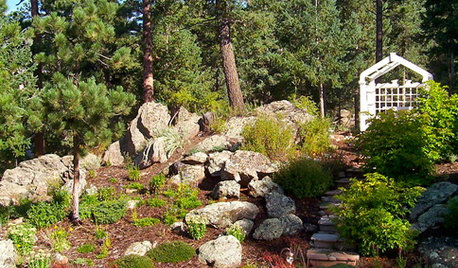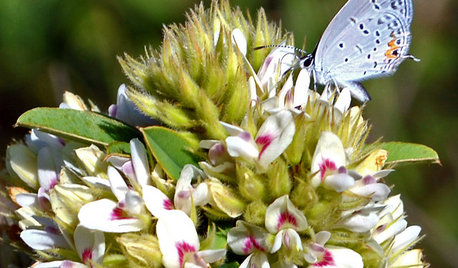Color of Soil
fescue_planter
16 years ago
Related Stories

GARDENING GUIDESHow to Stop Worrying and Start Loving Clay Soil
Clay has many more benefits than you might imagine
Full Story
GARDENING GUIDESGardening Solutions for Heavy Clay Soils
What’s a gardener to do with soil that’s easily compacted and has poor drainage? Find out here
Full Story
FARM YOUR YARDHow to Get Good Soil for Your Edible Garden
The nutrients in your soil feed the plants that feed you. Here are tips on getting it right — just in time for planting season
Full Story
GARDENING GUIDESGet the Dirt on Your Garden’s Soil
Understand how your soil supports your plants so you can ensure your garden’s success
Full Story
GARDENING GUIDESGrow a Beautiful Garden in Alkaline Soil
Got alkaline soil? Learn how to manage it and the many beautiful plants that will thrive in this ‘sweet’ soil
Full Story
GARDENING GUIDESHow to Pick a Mulch — and Why Your Soil Wants It
There's more to topdressing than shredded wood. Learn about mulch types, costs and design considerations here
Full Story
GARDENING GUIDESHave Acidic Soil in Your Yard? Learn to Love Gardening Anyway
Look to acid-loving plants, like conifers and rhododendrons, to help your low-pH garden thrive
Full Story
GARDENING GUIDESThe Poop Scoop: Enrich Your Soil With Good Old Manure
Get over the ick factor already — this natural super-ingredient for soil has so many benefits, you'll wonder why you ever went chemical
Full Story
GARDENING GUIDES5 Prairie Wildflowers That Can Heal Your Soil
Get free, organic soil fertilizer with nitrogen-pumping plants that draw pollinators too
Full Story
LANDSCAPE DESIGNHow to Shape a Rain Garden and Create the Right Soil for It
Learn how to grade, lay out and amend the soil in your rain garden to support your plants
Full StorySponsored






morpheuspa (6B/7A, E. PA)
fescue_planterOriginal Author
Related Professionals
Bellflower Landscape Architects & Landscape Designers · Benbrook Landscape Architects & Landscape Designers · Clark Landscape Architects & Landscape Designers · Jennings Landscape Architects & Landscape Designers · Piqua Landscape Architects & Landscape Designers · Cornelius Landscape Contractors · Galt Landscape Contractors · La Mirada Landscape Contractors · Rockwall Landscape Contractors · Midwest City Swimming Pool Builders · Brea Fence Contractors · Oakdale Fence Contractors · Sun City Fence Contractors · Sunrise Manor Fence Contractors · Woodinville Fence Contractorsskoot_cat
morpheuspa (6B/7A, E. PA)